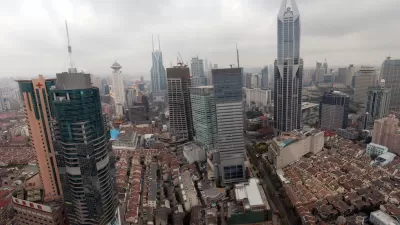The migrants that have swelled China's cities in recent decades still remain 'second-class citizens', unable to sell their rural land or have access to public services like schools or medical care. Will the country's new leaders change this?
"An unusually public debate has unfolded in think-tanks, on microblogs and in state media about how China should improve the way it handles urbanisation," reports The Economist. "Some propose that migrants in cities should, as quickly as possible, be given the same rights to services as urban dwellers. Others insist that would-be migrants should first be given the right to sell their rural plot of land to give them a deposit for their new urban life. Still others say the government must allow more private and foreign competition in state-controlled sectors of the economy such as health care, which would expand urban services for all, including migrants. Most agree the central government must bear much more of the cost of public services and give more power to local governments to levy taxes."
"Any combination of these options would be likely to raise the income of migrants, help them to integrate into city life and narrow the gap between the wealthy and the poor, which in China is among the widest in the world. Such reforms would also spur on a slowing economy by boosting domestic consumption."
As the authors explain, the “handshake buildings” (so named because they are separated from each other by only a few feet) that comprise "China’s favelas" and house the many migrants not living in factory dormitories, could become a solution for the country's urbanization ills by "[increasing] the supply of affordable housing and [helping] more migrants become proper urban residents."
FULL STORY: Some are more equal than others

Planetizen Federal Action Tracker
A weekly monitor of how Trump’s orders and actions are impacting planners and planning in America.

Map: Where Senate Republicans Want to Sell Your Public Lands
For public land advocates, the Senate Republicans’ proposal to sell millions of acres of public land in the West is “the biggest fight of their careers.”

Restaurant Patios Were a Pandemic Win — Why Were They so Hard to Keep?
Social distancing requirements and changes in travel patterns prompted cities to pilot new uses for street and sidewalk space. Then it got complicated.

Platform Pilsner: Vancouver Transit Agency Releases... a Beer?
TransLink will receive a portion of every sale of the four-pack.

Toronto Weighs Cheaper Transit, Parking Hikes for Major Events
Special event rates would take effect during large festivals, sports games and concerts to ‘discourage driving, manage congestion and free up space for transit.”

Berlin to Consider Car-Free Zone Larger Than Manhattan
The area bound by the 22-mile Ringbahn would still allow 12 uses of a private automobile per year per person, and several other exemptions.
Urban Design for Planners 1: Software Tools
This six-course series explores essential urban design concepts using open source software and equips planners with the tools they need to participate fully in the urban design process.
Planning for Universal Design
Learn the tools for implementing Universal Design in planning regulations.
Heyer Gruel & Associates PA
JM Goldson LLC
Custer County Colorado
City of Camden Redevelopment Agency
City of Astoria
Transportation Research & Education Center (TREC) at Portland State University
Camden Redevelopment Agency
City of Claremont
Municipality of Princeton (NJ)



























